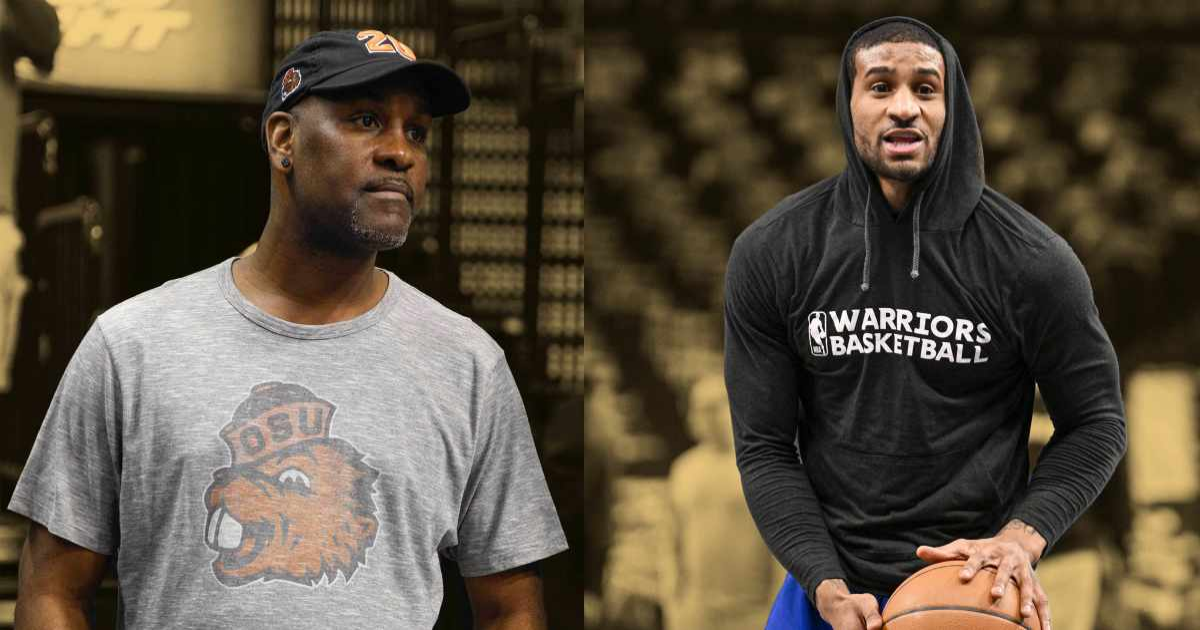Gary Payton has had to face the life of an NBA dad, and that means learning how to manage expectations — and take a back seat for his son to carry the Payton name forward. For a Hall of Famer, it’s a rare and humbling role reversal. He’s not the show anymore, and that’s exactly how he wants it.
There’s no blueprint for fathers who’ve made history in the NBA and now have to watch their sons chase their own place in it. But Payton is determined to play his part right: behind the scenes, not in the spotlight.
Payton’s backseat
The Seattle icon knows the media always wants him, but he doesn’t want to be wanted and wants everyone to focus on his son.
“It’s not my time,” Payton said. “Everybody want to do interviews with me and talk about him and stuff. I turned down interviews because this is not about me; it’s not about Gary Payton. It’s about Gary Payton II.”
For as long as Gary Payton II has been in the NBA orbit, people have had their eyes and microphones pointed at his father. And while that may seem flattering, for the younger Payton, it’s often meant playing in the shadow of a nine-time All-Star and former Defensive Player of the Year.
But the Supersoncis legend isn’t clinging to his legacy. He’s shielding his son from it as his NBA journey hasn’t been a smooth inheritance of his father’s legacy. Coming out of Oregon State, just like his dad, he went undrafted in 2016. His career has been winding, hopping between teams like the Milwaukee Bucks, Los Angeles Lakers, Washington Wizards, and even the Rio Grande Valley Vipers in the G League.
The comparisons to his father were always there, but the opportunities weren’t. It took him six years and multiple stints on 10-day contracts before he finally carved out a real place in the league. It wasn’t until he joined the Golden State Warriors in the 2021–22 season that he broke through.
In a system that prized defensive grit, hustle, and versatility, Gary Payton II found his niche — and won an NBA championship doing what he does best: defending like a menace, finishing around the rim, and making the little plays that don’t always make the highlight reels.
Focus on him
His playoff performance in that championship run was a statement in itself. He was a contributor to a title-winning team. He played 16 postseason games, shot over 65 percent from the field, and put clamps on opposing guards.
His impact was so vital that the Warriors brought him back in a mid-season trade from the Portland Trail Blazers the following year. The elder Payton isn’t just stepping back. He’s making it clear that this is his son’s story. No one else’s.
“I turned down interviews because I said, ‘Talk to him. Please get all the story from him. Don’t matter about me. It’s not about me,” he said. “That’s why I sit down on the bench; I don’t go crazy because I don’t want the camera on me, focusing on me.”
The GSW guard is now far from the trash-talking, chest-pounding defensive ace of the ’90s. He wants the camera to focus on the one putting in the work now, not the one who has already made the Hall of Fame.
This self-awareness, this conscious decision to retreat from the narrative, says more about Gary Payton’s legacy than any stats ever could. It’s one thing to dominate an era of basketball; it’s another to know when to step aside for the next generation.
Gary Payton II is still fighting to cement his place. Injuries have slowed him down in the past year, but his defensive value remains high. In limited minutes, he continues to bring energy and toughness to a Warriors team that needs exactly that.
